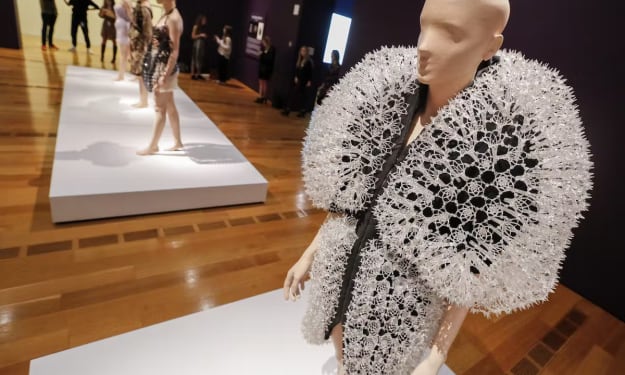The Future of Fashion Design Education
Future of Fashion Design Education

Fashion design education has been evolving over the years, adapting to new trends, technologies, and consumer demands. In the future, fashion design education is expected to continue to evolve, driven by the need for designers to be more innovative, sustainable, and socially responsible.
One of the main trends in the future of fashion design education is the integration of technology. With the increasing use of digital tools and platforms in the fashion industry, designers must be trained in the latest software and tools that help them create and design more efficiently. In the future, fashion design college/institutes will have to offer courses that teach students how to use technologies such as virtual and augmented reality, 3D printing, and artificial intelligence to enhance the design process. These technologies will not only make the design process more efficient, but they will also enable designers to create more personalized and sustainable designs.
Another important trend in the future of fashion design education is sustainability. The fashion industry is one of the most polluting industries in the world, and there is an urgent need for designers to create more sustainable and environmentally friendly products. In the future, fashion design colleges will have to integrate sustainability into their curriculum and teach students how to create sustainable designs using eco-friendly materials and production methods. Courses on sustainability and circular fashion will become mandatory, and students will be taught how to design with the environment in mind.
The future of fashion design education will also focus on the social impact of fashion. With the increasing demand for fashion to be more inclusive and diverse, fashion design colleges will have to train students to create designs that are culturally sensitive and inclusive. Fashion courses on diversity and cultural sensitivity will become mandatory, and students will be taught how to design for different body types, genders, and cultures. In addition, fashion design colleges will have to address issues such as labor exploitation and human rights violations in the fashion industry, and teach students how to create designs that are ethically and socially responsible.
Collaboration and interdisciplinary learning will also be a key trend in the future of fashion design education. In the future, the fashion design colleges in India will collaborate with other disciplines such as engineering, science, and business to create a more holistic approach to fashion design. Students will be taught how to work in interdisciplinary teams, and courses will be designed to integrate multiple disciplines into the design process. This approach will not only help students to become more innovative and creative, but it will also prepare them for the diverse and dynamic nature of the fashion industry.
The future of fashion design education will also see a shift towards a more personalized and experiential learning approach. With the increasing demand for customized and personalized designs, fashion design colleges will have to offer fashion design courses that are tailored to the individual needs of students. This approach will allow students to focus on their strengths and interests, and to develop their own unique design style. Experiential learning will also become more important, with fashion design colleges offering internships, apprenticeships, and other hands-on learning opportunities to help students gain practical experience and develop their skills.
Finally, the future of fashion design education will be shaped by the changing nature of the fashion industry. With the rise of e-commerce, social media, and fast fashion, the fashion industry is becoming more global, fast-paced, and competitive. In the future, fashion design colleges will have to prepare students for these changes by teaching them how to navigate the digital landscape, how to adapt to changing consumer demands, and how to create designs that are both timeless and relevant. Courses on entrepreneurship and business management will also become more important, as designers will need to be able to start their own businesses and manage their own brands.
Conclusion:
The future of fashion design education is exciting and full of opportunities. With the integration of technology, sustainability, social impact, collaboration, personalized learning, and adaptability, fashion design colleges will be able to produce designers who are not only creative and innovative but also socially responsible and environmentally conscious. The fashion industry is evolving rapidly, and fashion design education must evolve with it to prepare students for the challenges and opportunities ahead.
It is important for fashion design colleges to adapt and stay current with the latest trends and technologies in the fashion industry. They should integrate sustainability, social impact, and interdisciplinary learning into their curriculum and encourage personalized and experiential learning. Collaboration between different disciplines will be important to create a holistic approach to fashion design, and entrepreneurship and business management courses will be necessary to help students prepare for the business side of the fashion design industry.
About the Creator
Kavita Thakur
FASHION DESIGN DIARY BY KAVITA
A Daily Dose of Fashion Inspiration, Where fashion meets creativity!






Comments
There are no comments for this story
Be the first to respond and start the conversation.